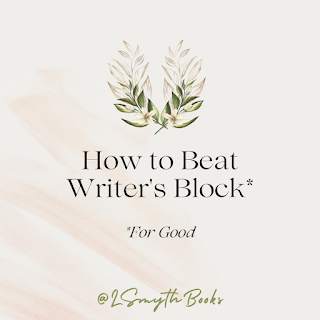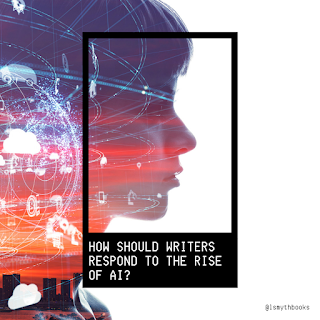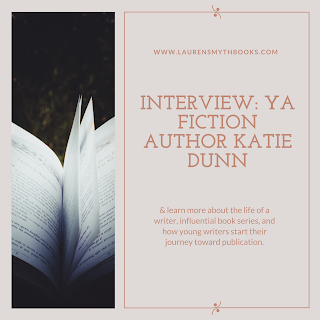How to Beat Writer's Block for Good
Every Wednesday at 3:00, I pull up my chair, click a red button, and start talking on the radio. I run through the most important national news, tell an interesting local anecdote, recap sports scores, and predict the weather. (There are no windows in the radio station, so the old joke about weathermen never looking out the window is sadly true in my case.)
If I didn't get on with the talking, well, there would be no newscast that day.
"I just wasn't feeling it," my brain-dead alter ego might complain, avoiding the station chief's eyes. (Even just thinking about this, I'm grateful it's just an imaginary scenario. Shivers.) "I sat down in front of the microphone, but I went mute, and therefore there will be no 4:00 news. The station will just have to be silent out of respect for my suffering. Apologies for any inconvenience. I will try again next Wednesday."
That would be almost ludicrously unacceptable - and yet, writers do this all the time. Merriam Webster defines writer's block as "a psychological inhibition preventing a writer from proceeding with a piece," which is more or less the same thing as opening your mouth and having no words come out.
If writer's block is unavoidable, as many writers claim, the whole profession of journalism - particularly print journalism - should have tottered into the grave a long time ago. Somehow, though, it survived. Columnists write columns each week (and some of them publish every day!) for years on end.
There's no doubt that writer's block exists, and it has killed the careers of many promising authors. But you don't have to be its next victim.
Merriam Webster's definition of writer's block is concise, but it's too all-encompassing. There are actually several different types of writer's block, and which one you have will determine what you should do to fight back. Get out your metaphorical sword, Writer, and let's begin.
Writer's Block Type #1 - You're Expecting Perfection
You've heard the cliche: "Perfection is the enemy of the good." If your self-imposed standards are astronomically high, you'll never be satisfied with anything you write. That's immensely discouraging, and you'll eventually find yourself burnt out on writing altogether.
You want to do as well as you can, of course, but you can't do better than that. Realize that you're human, you're imperfect, and no one is expecting you to be perfect - except you, and that expectation hurts more than it helps. There's a tidy analogy from economics: If an economy produces past what it is capable of sustaining in the long run, even if it's only for a little while, everything will eventually collapse into a recession. So: Don't push yourself past what you can reasonably be expected to achieve.
You will write brilliant things, and you will write things that are good enough (and are completed on time). Be satisfied with both.
Writer's Block Type #2 - You're Saying the Wrong Thing
Ray Bradbury succinctly defined this second type of writer's block during the keynote address of The Sixth Annual Writer’s Symposium by the Sea:
In the middle of writing something you go blank and your mind says: “No, that’s it.”
The end. Forget that you have a deadline tomorrow. Forget that you want to write, that you have a story to tell, that you have something interesting worth saying. In the end, your mind simply shuts off and that's all there is to it. No arguing allowed.
Unless ...?
There's a Part II to the Bradbury quote. Here it is:
You’re being warned, aren’t you? Your subconscious is saying “I don’t like you anymore. You’re writing about things I don’t give a damn for.”
In short, writer's block (at least as defined by Bradbury) is a sure sign you're writing the wrong thing. Maybe you're defending an opinion you disagree with because you think your professor will approve. Maybe your argument is weak, and you need to rethink it but don't feel like you have time to recalibrate. Maybe you're forcing a plot point onto your story instead of letting it unfold naturally.
If you know this is you, stop, drop, and check your source material and your stopwatch. If you truly don't have time to rethink, forge ahead and do the best you can. Changes are, though, you'll have enough time. Finding that time might mean putting other tasks off until the last minute. Sometimes, that's okay - sometimes it's the best you can do. Or it might mean sitting down and your computer and not getting up for an hour. Whatever the case, the best solution to this type of writer's block is to reconsider what you're doing and check whether you're really saying what you want to say.
Don't force yourself to write for someone else. Being unable to take pride in your work is soul-crushing, and it will destroy your love for writing.
Writer's Block Type #3 - Distractions Galore
Good old Instagram. Every writer needs this powerful marketing tool, but no writer needs an endless stream of cat videos that suddenly become ten times more interesting when there's a deadline looming.
If you find yourself getting easily distracted when it's time to sit down and crunch out some words, there are two possible explanations. One: You're just easily distracted. It happens. I count myself in this camp. Two: You're overworked and haven't taken a proper break. Be careful to identify which of these two alternatives is the source of your problem, or you'll find yourself wasting immense amounts of time.
If you're the sort of person who is easily distracted, try using the Pomodoro technique. Focus intensely for 25-45 minutes, and then take a 5-10 minute break (during which you can watch cat videos to your heart's content). Knowing you'll have a break in the near future is highly motivational. All you have to do is get this one task done, and then you can stop.
If you know you've been working too hard and haven't taken care of yourself, take a moment to think about something you enjoy. Whenever I'm taking an evening to de-stress, I like to do three things: 1) Something healthy (like exercise), 2) Something lazy (like watching a movie), and 3) Something thoughtful (like journaling). Maybe your self-care break is three hours on a Thursday night, and you use a face mask you've been saving, watch an episode of Sherlock, and spend a few minutes in prayer. That's often all it takes to wipe away weeks of stress and frustration, and you'll likely find yourself much more focused and productive the next time you sit down to write.
Don't let yourself get run down, but don't use this as an excuse when you know it's not the problem.
***
Here's one last excerpt from the Bradbury speech:
I’ve never worked a day in my life. The joy of writing has propelled me from day to day and year to year. I want you to envy me, my joy. Get out of here tonight and say: ‘Am I being joyful?’
Writing is supposed to be fun. It's artistic, it's creative, it's storytelling, it's a gift. If you can remember why you fell in love with writing, you'll be less likely to face writer's block of any kind, and you'll spend your time busy with something you love.
Next time you face writer's block, don't panic. Treat the problem, reset, and just keep writing.



Comments
Post a Comment